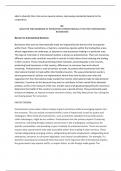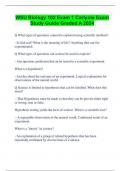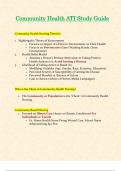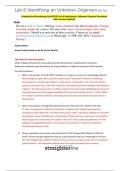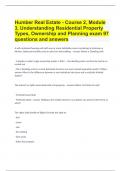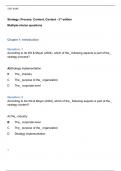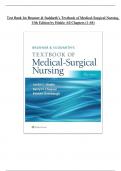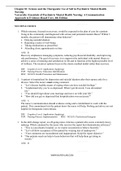Essay
*NEW* Unit 5 International Business: M2 - Analyse the barriers of operating internationally for two contrasting businesses.
- Institution
- PEARSON (PEARSON)
*Certified High Graded Work* Unit 5 International Business: M2 - Analyse the barriers of operating internationally for two contrasting businesses. B3 Barriers to international business • The reasons for protectionism in international markets, e.g. to protect infant industries, to protect em...
[Show more]
